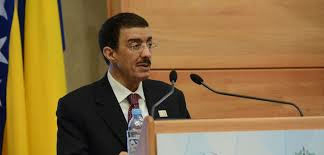Bandar Hajjar
We live in an era where consumers, especially young people, demand that values and purpose are embedded into the work of businesses, employers and financial markets. In the decade since the financial crisis there has been mounting concern about why the system could have failed so badly, with the consequent effect on society, coupled with fresh opportunities in impact, ethical or environmental, social and governance investment.
For Muslims, these values-driven financial packages are not new.
Over centuries, Islamic finance products and instruments have been created. The first trade of an Islamic bond, known as a Sukuk, took place in Damascus around 650AD. The Prophet Mohammed was himself a merchant. He understood the power of the markets to drive economic growth and prosperity. Islamic finance places great importance on improving the quality of life, social equity and fair trade relations. It recognises the importance of protecting the environment and forbids irresponsible profiteering at the expense of others, or investment in businesses that damage our society.
Today, these ancient concepts are being reappraised as the world seeks to build models of values-based investment. In recent years, ESG and Islamic finance have been among the fastest growing financial sectors, while providing resilience during the downturns. At the same time, the total volume of Islamic ?nancial assets has grown 15 to 20 per cent annually over the past two decades, and exceeds $2tn, according to the IMF.
Together, these twin drivers have created mounting pressure for the incorporation of ESG factors into investment decisions and for better management of risk in favour of generating sustainable, long-term returns. The most significant route for progress is via the UN’s Sustainable Development Goals (SDGs), which seek to raise the level of development finance from the order of billions to trillions across the next decade. It is an ambitious aim that requires a “decade of delivery” from 2020, but time is running short. The effects of climate change and the decline in healthcare provisions are among many global challenges.
The magnitude of the challenges is immense, but never has the need for co-operation been of such importance. It requires financial products that are innovative and reflect a long-term vision that unlocks the inflow of investment through guarantees and credit enhancement, while mitigating the perceived risks of investment in developing countries.
If the world is to come to a better understanding of collective responsibility for large corporate groups, big tech and rising populations, the SDGs provide our best opportunity. A robust financial services industry will be critical to unlock finance across these value chains and Islamic finance is well positioned to lead the way. The Islamic Development Bank, which has operating assets of more than $16bn and subscribed capital of $70bn, wants to facilitate this transition by using our financial credibility and AAA rating to help leverage greater funds from the capital markets into development. The bank is also exploring green bonds.
Based on principles that promote links between finance and economic activities, it is time to position the Islamic finance industry as a development leader. By doing so, the deployment of Islamic finance solutions has the potential to play an important role in helping to bridge the financing gap for the SDGs, and subsequently pave the way for a reinvigorated, more accountable financial system.
The global community needs to explore Islamic finance as a means of investing in tangible assets that supports the real economy and greater financial stability, helps end extreme poverty and boosts shared prosperity.
—(Courtesy: Financial Times)










